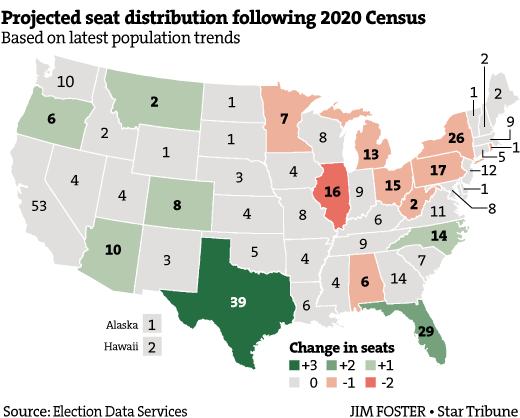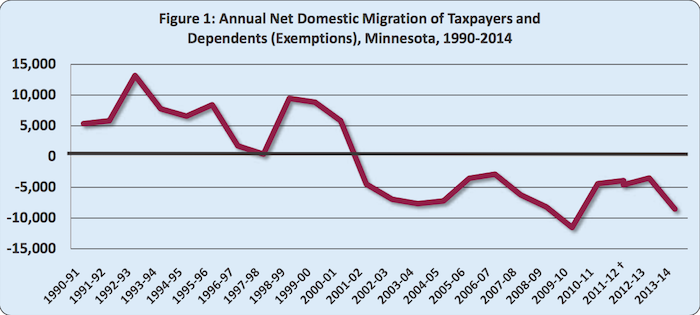Minnesota May Lose a Congressional Seat. But Why?
The Star Tribune reports on something that has been in the wind for a while: Minnesota may lose a congressional seat following the 2020 census. Currently, Minnesota has eight congressional districts. That number may fall to seven:
Minnesota is facing the risk of losing one of its congressional seats after the next census amid booming population gains elsewhere in the country, a rare event that could diminish the state’s voice in Washington.
Based on current population trends, this map shows anticipated gains and losses among the states. Note that none of the states bordering Minnesota is projected to lose a seat:
The Strib article doesn’t discuss why Minnesota has experienced slow population growth in recent years. This paragraph comes closest, but it is misleading:
Minnesota has added about 216,000 people since 2010, based on the latest estimates from the Census Bureau, a growth rate of about 4 percent. Most of it was due to births outpacing deaths and international migration rather than domestic migration.
Actually, all of Minnesota’s population growth has come from the natural excess of births over deaths and international migration. Since 2000, Minnesota has lost population to other states due to domestic migration. American Experiment’s Peter Nelson has written about this subject repeatedly, most notably in last year’s paper titled Minnesotans on the Move to Lower Tax States 2016. This chart shows the net gain or loss of population through domestic migration from 1990 through 2014:
Minnesota used to be a magnet, attracting residents of other states. Now Minnesota drives away more citizens than it attracts. Why is that? The reasons why people move from place to place are of course variable, but a mediocre economy and high taxes are the obvious culprits. It is worth noting that the states that are projected to gain the most seats from the 2020 census are Texas (3) and Florida (2). One thing those states have in common is that neither has a state income tax.

